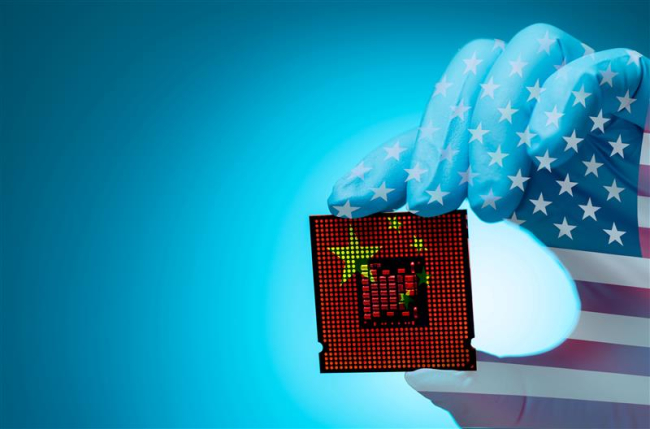Implications of the Global Supply Chain Reform: A Taiwanese Perspective

How have both the private and public sectors in Taiwan sought to mitigate the challenges posed by the reform agenda for global supply chains (GSCs)?

Participation in GSCs has long been a central pillar of Taiwan’s economic development. Over the last four decades, the mode of participation has evolved from labor-intensive assembling to electronic contract manufacturing (ECM) of information and communications products, semiconductors, and other high-tech products. Many Taiwan ECM companies are now world leaders, especially in the semiconductor and information and communications technology (ICT) contract manufacturing sectors, with more than 50% of global market share across many product lines. Market share reflects not only the competitiveness of these companies but more importantly the level of involvement in the GSCs. One unique element behind Taiwan’s success in GSC participation is the rise of China and the robust ECM production networks that were established across the Taiwan Strait. As of 2021, a significant portion of Taiwan ECM companies were still delivering their orders through their production facilities in China.
As a major stakeholder in the GSCs, the unprecedented and growing pressure of GSC reform is having a strong and direct impact in Taiwan. The first source of pressure came from the soaring production costs in China and the rise in Chinese supply-chain competition. Strategic industry policies such as the “Made in China 2025” that favor domestic competitors over Taiwanese and other foreign firms further increase the persistent pressure to operate in China. The second and more acute wave of pressure comes from the US-China economic rivalry, while the Covid-19 pandemic has further intensified the pressure for supply-chain diversification. Finally, major economic powers, including the US, the European Union and Japan, are all pursuing economic “strategic autonomy” that aims at increasing national manufacturing capacity, forging new trusted alliances and reducing reliance on China.
Taiwan ECM companies reacted swiftly to the trade and technology war between the US and China. Production in China has been scaled back rapidly in recent years, especially of ICT products. Diversification efforts started with the jumpstart and expansion of production capacities in Taiwan, with new investments in Vietnam, Indonesia, the US and the EU. Supply-chain reform (in particular the homecoming of ECM companies) also amends trade patterns. The US, for instance, returned in 2019 as Taiwan’s second largest export market after China. The Taiwan government, on the other hand, initiated large facilitation programs to welcome the homecoming ECM companies, and other trade and regional programs, including the “New Southbound Policy” to assist the GSC reform process.
This paper underscores several structural uncertainties and challenges. The first is associated with an international economic environment that is increasingly dominated by economic security and strategic autonomy policies. The structure and operation of the GSCs are likely to depart from economic rationales to accommodate geopolitical considerations. In the long run, the possibilities of over-supply and other distorted consequences are high. The second risk is “supply chain nationalism”, i.e. the emergence of advocacy for preferential treatment for domestic suppliers based on the nationality of the supplier. Finally, argues the author, the risk of decoupling between China on one hand and US-led democratic countries on the other is also increasing.

Available in:
Regions and themes
ISBN / ISSN
Share
Download the full analysis
This page contains only a summary of our work. If you would like to have access to all the information from our research on the subject, you can download the full version in PDF format.
Implications of the Global Supply Chain Reform: A Taiwanese Perspective
Related centers and programs
Discover our other research centers and programsFind out more
Discover all our analysesArtificial Promises or Real Regulation? Inventing Global AI Governance
The risks inherent to the unregulated use of AI, a key technology and vector of profound transformations within societies underline the pressing need to harmonize governance efforts at the international level. The Summit for Action on Artificial Intelligence to be held in Paris in mid-February could be an unprecedented timely occasion to agree on a global governance framework of AI for the public good.
AI, Data Centers and Energy Demand: Reassessing and Exploring the Trends
The information and communication technologies sector today accounts for 9% of global electricity consumption, data centers for 1-1.3%, and artificial intelligence (AI) for less than 0.2%. The growing energy demands of cloud services first, and now AI workloads (10% of today’s data centers electricity demand), have exacerbated this trend. In the future, hyperscale data centers will gain shares amongst all kinds of data centers and AI will probably account for around 20% of data centers electricity demand by 2030.
From nonproliferation to strategic competition: US export controls and China
Technological competition is at the heart of the renewed great-power competition that has characterized relations between the USA and China since the 2010s. The role of technological innovation in the evolution of power relations is already recognized in the literature of international relations. However, developments in US technology policy under the last two administrations raise the reverse question: how does the perception of changing power relations (in this case, Chinese technological catch-up perceived as a threat to US leadership) transform policies granting or denying access to technological innovation?
China’s Mature Node Overcapacity: Unfounded Fears
China is decoupling from, not flooding, the global mature-node semiconductor market. As China increasingly pursues industrial policies encouraging domestic chip production, its own growing chip demand will prevent a direct flood of cheap Chinese chips on foreign shores. However, as Beijing achieves its goal of decreasing the reliance of domestic downstream manufacturers on foreign chips, European and American mature-node semiconductor companies will feel the ripple effects of an increasingly “involuted” Chinese chip ecosystem.








